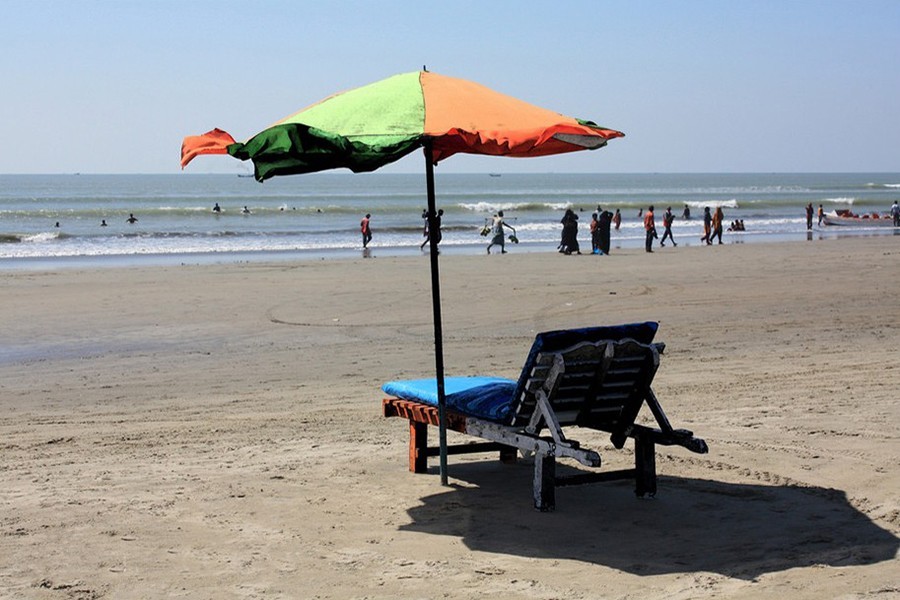Upon reaching the Cox's Bazar sea beach, hundreds of domestic tourists have recently found the seaside chockablock with people. Not only the beach, the whole district headquarters seem to be now overtaken by tourists from Dhaka, Chattogram and other urban areas. Such a scenario was unthinkable during the peak of the corona pandemic. The beach was then off-limit to tourists. Upon withdrawal of the ban, at least for now, compulsive tourists have swarmed the beach. They may have started feeling suffocated upon being forced to remain stayed put at their homes. Similar pictures comprising desperate tourists are being encountered at all the tourist sites in the country.
Amid this tour frenzy, the sector which is making windfall profits comprises hotels, motels and guesthouses in Cox's Bazar. Evidently, they are putting in their best of efforts to recoup their corona-time losses. But the authorities continue to overlook the plight of many a tourist. The unavailability of hotels even for a single overnight stay comes as a great disillusionment for many seasoned tourists. To their utter shock, they came to know that most of the night halts had been booked in advance, the sought-after ones nearly a week back. The spectacle is nothing unusual. The country's tour season on the beaches, especially the one at Cox's Bazar, begins around this time. It continues up to February-March. The present year is no exception. Everything is going as expected. The perturbing aspect of the matter is non-compliance with the imperatives related to the ongoing pandemic. Foremost among them is maintaining physical distance, wearing of masks and abiding by other health guidelines. These prerequisites appear to have been thrown to the wind by large numbers of beach-goers at Cox's Bazar.
Perhaps to alleviate the pressure on the traditional and popular tourist sites, the relevant department under the tourism ministry has lately singled out 800 spots in eight divisions of the country. The Parjatan Corporation informed this on October 25 to the parliamentary standing committee on the Civil Aviation and Tourism Ministry. Against the backdrop of the recent increase in the number of domestic tourists, the identifying of these untapped sites emerges with auspicious prospects. With the potential tourists fanning out to newer tourist attractions, the overburdened spots are set to become free of unwarranted hazards and inconvenience. The divisions to be focused in the first phase are Sylhet, Khulna, Chattogram, Rajshahi, Barishal and Rangpur. The other two divisions are Mymensingh and Dhaka. Many spots in these eight divisions have long been visited by local tourists. In terms of scenic beauty, archaeological significance and historical importance, they have received focus of tourists from different parts of the country. In this context, habitual tourists cannot resist the temptation of mentioning a few spots. In the popular category of scenic beauty, the names of the panoramic and tranquil places in greater Sylhet and Chittagong Hill Tracts, Susang Durgapur in Netrakona and Mymensingh dominate the list.
Meanwhile, the authorities have already opened the Sundarbans to tourists after the withdrawal of the pandemic-time ban on visiting the mangrove forest. As has been seen in the country's major tourist sites like Cox's Bazar, the pandemic prevention rules run the risk of being flouted also in the Sundarbans. Thus precautions on the part of both the forest authorities and tourists deserve to be in focus.


